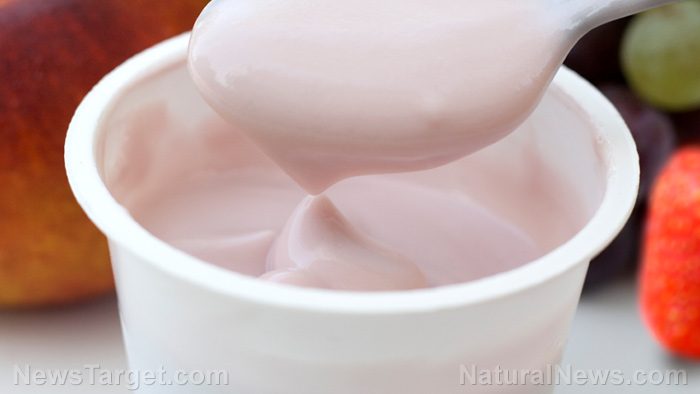Here’s why you should eat low-fat yogurt if you have acid reflux
04/17/2019 / By Edsel Cook

While yogurt is not for everyone suffering from GERD, it appears to alleviate many of the effects of the disorder. The fermented product can thus be considered a non-pharmaceutical approach to remedying acid reflux.
Yogurt is a type of fermented milk. It contains probiotics, beneficial bacteria that assist the immune and digestive systems. These good bacteria are added to the population of both good and bad microbes in the gut, ensuring the balance goes to the helpful ones.
However, if there are too many harmful bacteria in the small intestine, they could cause the esophageal sphincter to open. When this happens, stomach acid can escape through the opening and go into the food pipe. An attack of acid reflux – formally called “gastroesophageal reflux disease” or GERD for short – ensues.
A diet rich in probiotics ensures that bad bacteria never outnumber the good ones. In turn, keeping the population of good bacteria up also keeps the esophageal sphincter shut, which keeps the stomach acid where it belongs, which finally keeps acid reflux away. (Related: Eating at least two servings of yogurt per week can lower your risk of developing cardiovascular disease.)
Yogurt is good for acid reflux patients who are lactose-intolerant
Yogurt can also provide relief for symptoms of acid reflux. It contains less lactose than milk because many of the probiotic bacteria in yogurt can turn lactose into lactic acid. Patients who are lactose-intolerant can, therefore, enjoy the taste and health benefits of the fermented food.
Foods with similarly low or no lactose content can help regulate acid levels in the stomach. Likewise, foods that do not have saturated fats and trans fats are also suggested for acid reflux diets.
In addition to having low levels of lactose, full-fat yogurt contains polyunsaturated fats like omega-3 fatty acids. These good fats can also reduce stomach acid even further for GERD patients.
Going back to the probiotics in yogurt, some of its good bacteria can stop the occurrence of inflammation that takes place inside the digestive system. Much like low-lactose foods and polyunsaturated fats, these probiotics can decrease the amount of acid produced by the stomach by protecting it from inflammation.
Because yogurt is a dairy product, it contains a lot of calcium. The mineral is important for the muscles inside the digestive system because it strengthens their contractions. Calcium can directly benefit the muscles of the esophageal sphincter, helping it to stay close and keep stomach acid out of the food pipe.
Picking the right kind of yogurt for alleviating the symptoms of GERD
There are many different kinds of yogurt. They will have various levels of acidity, fat content, and ingredients. Picking the right one will be important to prevent acid reflux or alleviate its symptoms.
A number of yogurts have probiotics that are known for their ability to reduce inflammation and lower stomach acid levels. They are particularly effective for GERD.
Pick a yogurt that has the least amount of additives such as sugars and artificial sweeteners. Additives can trigger acid reflux attacks, which would defeat the purpose of taking yogurt as a remedy.
Check the label and nutrition information of full-fat yogurt. Pick a product with polyunsaturated fats, especially omega-3s that fight inflammation related to the disorder.
Whenever possible, get Greek yogurt. In addition to being rich in probiotic live cultures, it also has more than twice the amount of protein. Furthermore, Greek yogurt also has only half the amount of carbohydrates and sodium found in other yogurts. Acid reflux can be triggered by carbs and sodium.
Finally, pick a yogurt with low acid levels. The pH should be at least 4.8 and preferably higher to minimize GERD attacks.
Sources include:
Submit a correction >>
Tagged Under:
This article may contain statements that reflect the opinion of the author
RECENT NEWS & ARTICLES
COPYRIGHT © 2017 SUPER FOODS NEWS





















